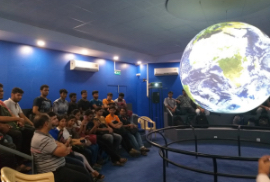Accomplishments

BEYOND TIT FOR TAT: ADVANCED STRATEGIES IN ITERATIVE PRISONER`S DILEMMA
- Abstract
-
PDF Full Text
This paper explores advanced strategies in the Iterative Prisoner s Dilemma (IPD) that aim to surpass the performance of the traditional Tit-for-Tat approach. Two novel strategies are proposed: Quantum Cooperate Defect (QCD), which leverages quantum-inspired principles like superposition to introduce strategic unpredictability, and Spiteful Memory, which incorporates an adaptive memory system with sophisticated punishment and forgiveness mechanisms. Through computational simulations involving 17 different strategies over 200-round tournaments, we computed the average scores by normalizing the total points accumulated by each strategy across all rounds and matches. The normalized score for each strategy was calculated as the sum of points obtained divided by the number of rounds. This method ensures consistent and comparable scoring across strategies, regardless of the number of interactions. QCD achieved a normalized score of 2.55, while Spiteful Memory achieved 2.40, both outperforming the classical Tit-for-Tat strategy, which scored 2.29. These results suggest that incorporating quantum principles and advanced memory systems can enhance strategy performance in iterative game-theoretical scenarios, particularly in longer games and noisy environments. Understanding and improving upon IPD strategies has profound implications for real-world applications, from economic decision-making to international relations, as these models help explain and predict cooperative behavior in complex social systems. Moreover, the development of more sophisticated IPD strategies could inform the design of artificial intelligence systems that need to make cooperative decisions in dynamic, multi-agent environments.



















